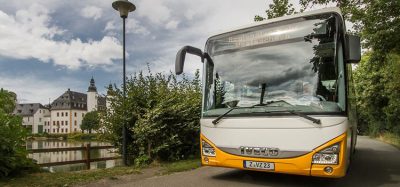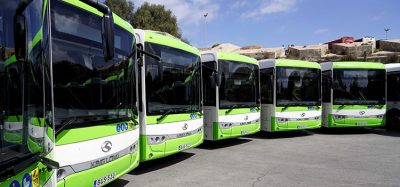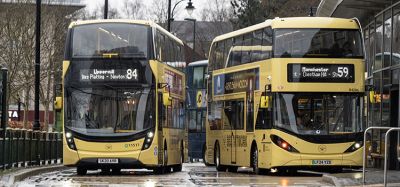Bus service featuring wireless charging tested in Swedish urban traffic
- Like
- Digg
- Del
- Tumblr
- VKontakte
- Buffer
- Love This
- Odnoklassniki
- Meneame
- Blogger
- Amazon
- Yahoo Mail
- Gmail
- AOL
- Newsvine
- HackerNews
- Evernote
- MySpace
- Mail.ru
- Viadeo
- Line
- Comments
- Yummly
- SMS
- Viber
- Telegram
- Subscribe
- Skype
- Facebook Messenger
- Kakao
- LiveJournal
- Yammer
- Edgar
- Fintel
- Mix
- Instapaper
- Copy Link
Posted: 9 December 2016 | Katie Sadler, Intelligent Transport | No comments yet
A bus service featuring wireless bus stop charging has begun operating in regular urban traffic in Södertälje, Sweden.
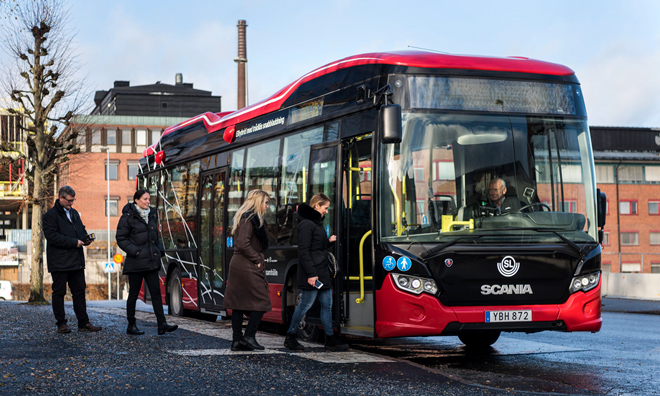

A bus service featuring wireless bus stop charging has begun operating in regular urban traffic in Södertälje, Sweden.
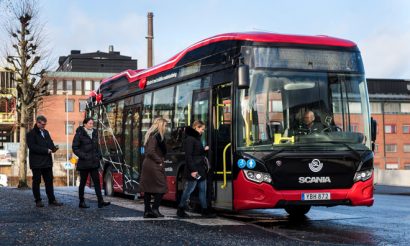

Credit: Scania
Testing of wireless (inductive) bus stop charging has begun for the first time in the Nordic region as part of efforts to identify new more sustainable solutions for public transport in urban environments. The bus and bus stop solution forms part of a research project where Scania, the public transport operator for the Stockholm region SL, Vattenfall, Södertälje Municipality, and the Royal Institute of Technology (KTH), are cooperating to develop a silent and sustainable public transport system. The SEK 38 million project is part financed by the Swedish Energy Agency.
Seven minutes of wireless charging cover the entire 10 km-long bus route
Wireless bus stop charging allows the bus to park over a charging segment located under the road surface at the charging station, where charging occurs automatically. The design of the inductive technology has been adapted so as not to disturb existing urban environments and is essentially invisible. Seven minutes of wireless charging is enough to cover the entire 10 km-long route, which the bus will operate in Södertälje. The technology is also under test so that it can operate in a more extreme climate.
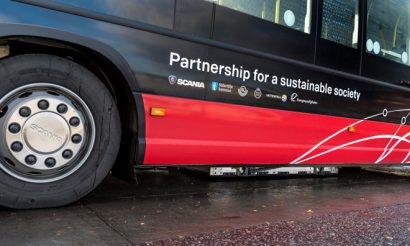

Credit: Scania
“The electric hybrid bus in this project demonstrates a technology track for a more sustainable transport solution. The inductive charging technology is both silent and invisible. The field test in Södertälje is important ahead of the choices facing both society and the automotive industry with regard to eliminating emissions and reducing noise from traffic in sensitive urban environments,” says Hedvig Paradis, who is a project manager at Scania and responsible for the company’s participation in the research project.


Credit: Scania
The bus that Scania will test in Södertälje’s urban traffic is a hybrid bus which means that the bus’s batteries are also charged during operation by utilising braking power. Charging may also occur using the bus’s combustion engine, which operates on fossil-free fuel.
Related topics
Alternative Power, Fleet Management & Maintenance
Related modes
Bus & Coach
Related cities
Sweden
Related organisations
Scania





